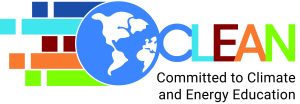
Climate Literacy and Energy Awareness Network (CLEAN)
The Climate Literacy and Energy Awareness Network (CLEAN) addresses the societal impacts of a changing climate by supporting educators and their students in teaching climate and energy topics effectively.
CLEAN is co-lead by a team from the University of Colorado, Boulder, the Science Education Resource Center at Carleton College and the National Oceanic and Atmospheric Administration.
Vision
It is critical to prepare tomorrow’s scientists, decision makers, and communities to address the societal impacts of a changing climate. In order to respond to, manage, and adapt to those changes, citizens of all ages need accurate, up-to-date information, knowledge of the sciences, and analytical skills to make responsible decisions and long-term resiliency plans regarding climate and energy topics. The Climate Literacy and Energy Awareness Network (CLEAN) addresses these needs by supporting educators and stakeholders in teaching climate and energy topics effectively.
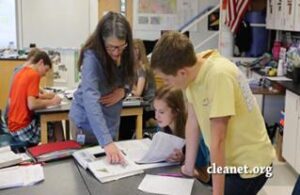
History
The CLEAN Network was founded in 2008 by a group of committed climate science educators who developed the Essential Principles of Climate Literacy, a document endorsed by the 13 federal agencies of the U.S. Global Change Research Program. The ongoing efforts of the CLEAN Network, initially called the Climate Literacy Network, resulted in the development of the CLEAN Collection in 2010 as a National Science Foundation-funded part of the National Science Digital Library (NSDL). The CLEAN Collection was developed and its content curated by a team of scientists, educators, and science education experts from TERC, the Cooperative Institute for Research in Environmental Science (CIRES) at the University of Colorado Boulder, and the Science Education Resource Center (SERC) at Carleton College. The CLEAN content is framed using the Essential Principles of Climate Literacy and the Essential Principles of Energy Literacy.
CLEAN has been supported by NOAA since 2012 and the CLEAN content is syndicated to NOAA’s Climate.gov website. The CLEAN Collection is also syndicated to the National Science Teacher Association Learning Center and the Open Educational Resources (OER) Commons collection. CLEAN Mission
CLEAN stewards a collection of climate and energy educational resources and supports a community of professionals committed to improving climate and energy literacy.
The three key components of CLEAN are
- CLEAN Collection of Climate and Energy Science Resources – high-quality digital resources (including learning activities, visualizations, videos, and short demonstrations/experiments) geared toward educators of students in elementary school through undergraduate levels;
- Guidance in Teaching Climate and Energy Science – a toolkit designed to help educators understand and be equipped to teach the big ideas in climate and energy topics;
- CLEAN Network – a community of professionals committed to improving climate and energy literacy.
Activities
The CLEAN Collection
The CLEAN Collection is an online database of about 1000 free, peer-reviewed, and ready-to-use educational resources for teaching about climate and energy topics with elementary, middle school, high school, and undergraduate students. The Collection contains learning activities, demonstrations, experiments, visualizations, animations, simulations, and educational videos which can help educators create data-rich and authentic lessons on climate and energy. The variety of the resources allows them to be used flexibly, including in non-science classrooms and informal science education environments like after school programs and science centers. All materials are aligned with the Next Generation Science Standards (NGSS) and support three-dimensional learning, which requires that students learn science by actively engaging in science and engineering practices and cross-disciplinary concepts to develop an understanding of the content. Customizable searches allow educators to look for resources based on grade level, content, resource type, subject, climate and energy topics, or NGSS.
The “Selected by CLEAN” logo highlights educational resource that are part of the CLEAN collection and is being put on the webpages by the developer of resources that are featured in the CLEAN collection.
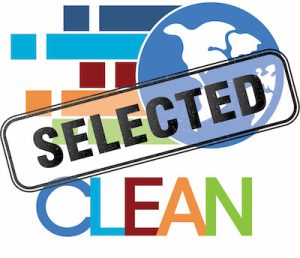
CLEAN, unlike a Google search, provides educators with resources that include both accurate content and solid pedagogy. Every item in the CLEAN Collection is rigorously reviewed by teams of educators and content experts to ensure that the resource is of high educational value and that the science in the resource is accurate and up-to-date. The figure below summarizes the multi-step review process.
The Collection is widely used by the education community; it now receives over 50,000 monthly website visits during the school year.
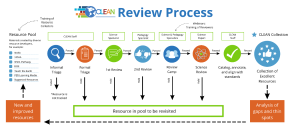
Guidance in Teaching Climate and Energy Science
The CLEAN portal provides essential knowledge and instructional support for those teaching climate and energy topics. With the CLEAN Educator Toolbox, educators can access background information about the content of the Climate and Energy Principles, guidance in teaching climate and energy topics, and information about accessing the Collection of resources to support their instruction. CLEAN has developed modules and support pages for teaching climate at the elementary level, culturally relevant climate education, managing the potential of climate as a controversial topic, addressing the national climate assessment report, and addressing mental health aspects of climate change. We have translated many of these pages into Spanish. CLEAN also offers webinars, thematic newsletters, and workshops to help teachers use the Collection and to provide professional development in teaching about climate and energy.
CLEAN provides educator support for creating customized lessons using CLEAN resources as building blocks starting with the NGSS performance expectations and the NGSS science and engineering practices. CLEAN has also developed information about where climate is addressed in the NGSS and how to teach climate while adhering to NGSS.
Teaching Climate and Energy Literacy:
One of CLEAN’s goals is to help teachers be as effective as possible when teaching about climate and climate change. CLEAN features a series of web pages pages that introduces our understanding of climate science in a sequence that illustrates different aspects of the climate system following the. The following set of climate and energy literacy principles. These principles provide a framework for teaching the science behind these issues. Each summary links to a more detailed discussion of what makes the topic important, why it can be challenging to teach, and suggestions for grade-level specific teaching strategies and links to relevant teaching materials. CLEAN also features a literacy quiz on each topic.
Teaching Climate Science: Natural and human influences on climate are presented here, as well as the effects of interactions between parts of Earth’s systems. Special emphasis is placed on the methods that scientists use to study the climate and make predictions about future impacts, as this is a topic that is sometimes misunderstood. The overarching Guiding Principle states that humans can take actions to reduce climate change and its impacts, which is a key part of teaching climate science.
Addressing Climate Change: These pages present a summary of the current understanding of how human actions influence the climate and how the climate influences people and other parts of the Earth system. Special emphasis is placed on the scientific literature, as well as Indigenous and local knowledge. People who understand and communicate effectively about climate change can work with their communities, workplaces, and institutions to design and implement solutions that address climate change and related social, economic, and environmental challenges. A climate-literate society is better able to develop and implement effective climate solutions that benefit all.
Teaching Energy Literacy
Energy is a paradox: it brings us light, warmth, security, and mobility. But on the other hand, energy extraction, burning of fossil fuels, and the unequal distribution of energy resources have wrought environmental and social problems for humanity. Energy use is at the root of climate change and many other issues, and we are seeing the beginnings of a global shift in energy sources and energy policy toward more cooperative, sustainable use of energy. The topics around energy are relevant in all science disciplines as well as in engineering, policy, social science, and economics.
CLEAN Network
The CLEAN Network is a professionally diverse community of over 700 members committed to improving climate and energy literacy (locally, regionally, nationally, and globally) in order to enable responsible decisions and actions. The CLEAN Network has been a dynamic group since 2008, hosting a weekly call every Tuesday. During this video conference, members collaborate and share information about their climate education work, upcoming events, and opportunities for collaboration or funding. CLEAN Network members regularly support each other in their climate education efforts. Frequent guest speakers present on their climate and energy literacy work and related topics. The group communicates through a vibrant email list, with over 40 posts per month discussing relevant topics, conferences, opportunities, and much more.
The CLEAN Network also provides professional development, networking, and collaborative opportunities at conferences and events, including many education and geoscience conferences and global climate summits. The Network has many partners throughout the formal and informal science education fields. Many educators are part of the Network and have shared their experiences teaching climate and energy topics in their classrooms during the weekly calls or within discussions on the email list. The Network is always looking for more speakers, so if you or someone you know is interested in sharing their experiences, please join the Network!
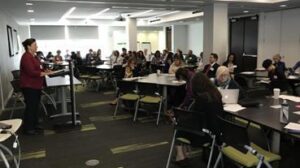 CLEAN co-organized workshop at the Global Climate Action Summit (September 2018, San Francisco)
CLEAN co-organized workshop at the Global Climate Action Summit (September 2018, San Francisco)
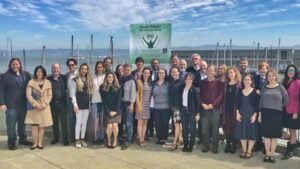 CLEAN co-organized workshop at the Global Climate Action Summit (September 2018, San Francisco
CLEAN co-organized workshop at the Global Climate Action Summit (September 2018, San Francisco
Impact
The CLEAN portal reaches many educators and climate and energy Partners each month; the site has had an average of 50,000 monthly sessions. Syndication through the NOAA, NSTA, and OER Commons websites has extended the availability of the CLEAN collection even farther. Webinars, newsletters, presentations at professional meetings, and discussions on the CLEAN email list further increase CLEAN’s reach. CLEAN has considered and triaged over 25,000 educational resources, resulting in a Collection of about 1000 highly-vetted educational resources. CLEAN has also developed guidelines for best practices in the development of educational resources. CLEAN conducts regular gap analyses that show gaps and thin spots in the Collection’s resources in order to inspire targeted resource development that can eventually enhance the Collection.
Recommendations for Replication and/or Adaptation
The CLEAN Network provides the structure to increase the collective impact of climate and energy education through its members’ connections to many organizations and groups across the country and around the world. The Network provides a mechanism for members to learn from the experience and expertise of others and supports opportunities for collaboration among members to enhance the effectiveness of their work. Membership in the CLEAN Network is free and open to anyone (join the Network).
Bringing Climate Topics into Your Classroom: Your One-Stop-Shop for Teaching Climate & Energy – CLEAN Portal
The Climate Literacy and Energy Awareness Network (CLEAN) is the national leader in climate education and an award-winning web portal designed for educators by educators and climate scientists. CLEAN provides trusted, high-quality resources to teach climate and energy topics effectively.
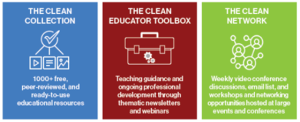
Why Use CLEAN?
-
- Curated Educational Resources – Access 750+ rigorously reviewed lesson plans, activities, videos, and interactive tools for K-12 and higher education. • Professional Development Support – Participate in webinars, workshops, and newsletters to stay informed on the latest climate and energy education developments.
- Instructional Guides – Learn how to integrate climate topics across the curriculum with standards-aligned resources like NGSS.
- Classroom Management Strategies – Gain support for navigating climate mental health topics and handling sensitive classroom discussions. • Community Engagement – Join the CLEAN Network, a vibrant professional community dedicated to climate education.
New & Featured Additions
✔ Climate Mental Health – Strategies and resources to help students and educators address emotions related to climate change and foster hope and resilience. ✔ Teaching Across the Curriculum – Resources for integrating climate topics into ELA, Social Studies, Math, and the Arts.
✔ NCA5 Teaching Resources – Guidance on using the National Climate Assessment to connect climate science with real-world impacts.

The CLEAN Collection and associated Teaching Guidance materials are being maintained with ongoing funding from NOAA. They are freely available to any organization or group that wants to feature them on their web pages—through syndication, through links to CLEAN resources or subsets of the Collection, or through the use of the CLEAN widget. The CLEAN team also offers custom webinars about different topics for free. Organizations and groups who are interested in exploring collaborations should contact CLEAN.
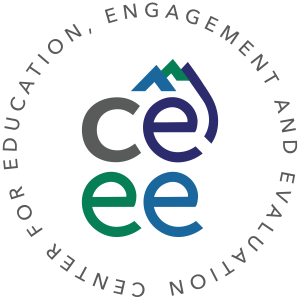
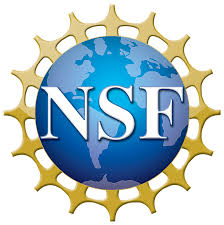
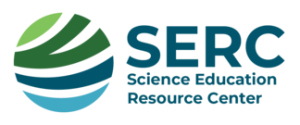
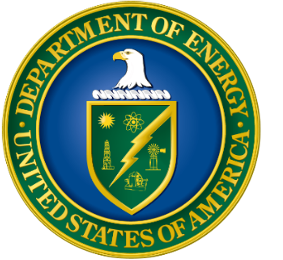
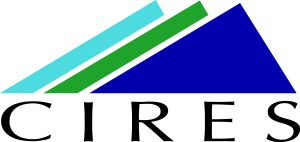
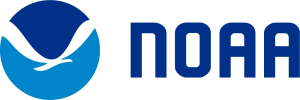
Contact Information
Website: cleanet.org
Email: clean@colorado.edu
Name: Kathryn Boyd, CLEAN Program Manager
Phone: 303-492-5670Mail: CIRES Center for Education, Engagement, and Evaluation (CEEE),University of Colorado
488 UCB
Boulder, CO 80309
